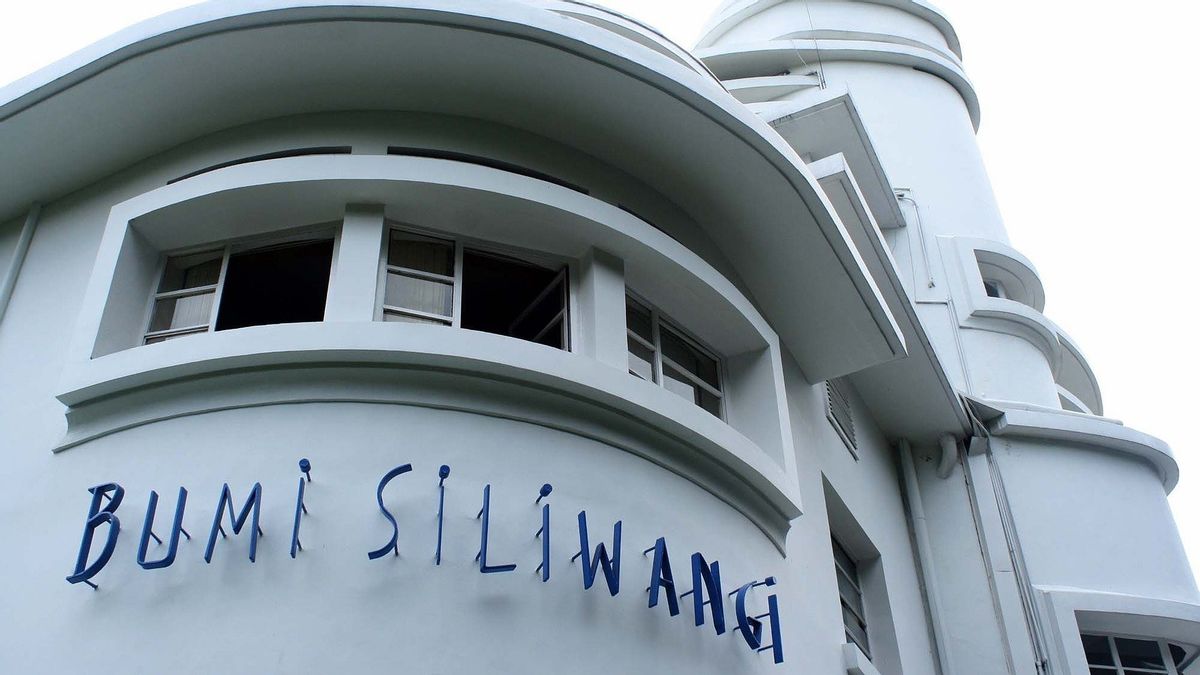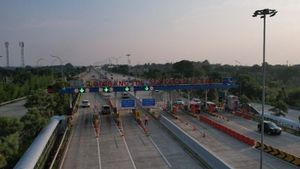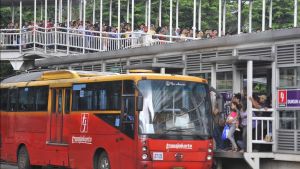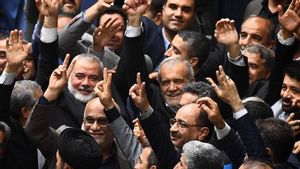BANDUNG - The authorities were involved in a clash with residents around the Tamansari area, Bandung, West Java. Residents do not accept being evicted for the construction of row houses in the area. The authorities must immediately reduce the potential for escalation of conflict in Bandung and its surrounding areas as a result of repressive actions by the authorities. The government must remember that the last time Bandung residents were expelled, the City of Flowers turned into a lake of fire.
Thursday, March 21, 1946, the British sent thousands of papers containing ultimatums so that the Indonesian fighters in Bandung would immediately leave the city. Before March 24, at 24.00 WIB, they were asked to retreat up to 11 kilometers from the point of zero kilometers. Tens of thousands of Bandung fighters were furious. They do not accept being kicked out of their own land.
In order to prevent the situation from getting hotter, Resident Ardiwinangun, who is the chairman of the West Java Indonesian National Committee (KNI), immediately left for Jakarta to meet Prime Minister Sutan Sjahrir. On that trip, Ardiwinangun was accompanied by a young man named Mashudi. Both asked the central government for directions on how to respond to the situation in Bandung.
Sjahrir advised that the fighters in Bandung would not be provoked by emotions. He even asked the fighters to fulfill the ultimatum of the allies. This story was told by Mohamad Rivai in the selfless autobiography I Defend the Proclamation of Independence on August 17, 1945, quoted by Historia.
“But, if you don't agree, it's up to you what you want to do. Want to burn Bandung, it's up to you. Just burn it! " exclaimed Sjahrir.
Sjahrir's message was then delivered by Ardiwinangun and Mashudi by telephone on March 22, 1946. The message from Jakarta was followed by a telegram sent by the Army Headquarters (MBT) in Yogyakarta. If Sjahrir's message is somewhat ambiguous, MBT's recommendation is very firm.
"Keep every inch of the ground spilled!" written.
In the afternoon, it was Colonel AH Nasution's turn to meet Sjahrir. To the Commander of Division III of the Indonesian People's Army (TRI), Sjahrir conveyed the same message. The central government asked Nasution to follow the ultimatum of the allied army.
"That was ordered by Prime Minister Sjahrir after his request for an extension of time for the implementation of the resignation was rejected by the Supreme Allied Commander in Jakarta," wrote Rivai.
Burn Bandung
In Bandung at the same time, Commander of the 23rd Indian Division General Hawthorn lowered forward orders to his troops. By radio on March 23, 1946 at around 16.00 WIB, Hawthorn announced that his troops would move to clean all kinds of weapons in the South Bandung area.
"To civilians, Hawthorn asked to calm down and leave the house during that period," said John RW Smail in Bandung Awal Revolusi 1945-1946.
Hawthorn's message farted, because most of the people in Bandung actually fought back. However, not defending with weapons. Instead, they left Bandung for the suburbs. The houses they left were on fire. '
"Even before the scorched earth was ordered, some of them had already burned their houses before going to evacuate," said Asikin Rachman, a fighter from Lasykar Hizboellah in his interview with Historia.
Nasution arrived in Bandung on the morning of 24 March 1946 with orders from Jakarta. Hard for Nasution. However, orders are still orders. He instructed all TRI troops to comply with the allied ultimatum as suggested by the central government.
The fighters refused. Lieutenant Colonel Omon Abdurrachman, who is the Commander of the TRI Eighth Regiment, delivered the voices of the fighters. However, what he got was Nasution's anger.
"You enter TRI is to comply with all requests from superiors! As the Commander of Division III, I command you: not to participate in the burning and vandalism movement of Bandung City! ” snapped Nasoetion.
Omon Abdurrachman did not waver. He remained in his decision to burn Bandung down. Omon Abdurrachman chose to resign from his position and settled in the struggle with the extremists in Bandung. He even removed his rank badge and placed it in front of Nasution.
It is said that Omon Abdurrachman was directly involved in the burning operation with thousands of Bandung people. The burning started at exactly 12 o'clock at night. The burning that spread throughout Bandung and turned the Flower City into a 'lake of fire'.
The expansion of the Tamansari conflict
The hot situation in Tamansari is still ongoing. The solidarity movement continues to strengthen on social media. The community was furious to see the police taking repressive actions against residents in Tamansari. Responding to this situation, police observer from the Institute for Security and Strategic Studies (ISeSS) Bambang Rukmito urged the police to immediately take action against members who commit violence against civilians.
This step is important to regain the trust of the wider community in the police. The goal, of course, is to reduce the potential for conflict expansion. According to Rukmito, it is very possible to expand the conflict, especially in Bandung and its surrounding areas.
"Yes, it will expand. (But) I think it is too far if it is interpreted as reaching a national issue. Because it is very local," he said when contacted by VOI, in Jakarta, Friday, December 13.
The authorities committed violence against residents pic.twitter.com/nmPIOIKc30
- N- (@kochengmerah) December 12, 2019
West Java Regional Police Head of Public Relations Kombes Pol Trunoyodo Wisnu Andiko realized this potential. He admitted that he had prepared preventative measures. One of them is to open lines of communication with various parties involved in the eviction issue. In addition, his party will also promote dialogical methods for the community.
"Kapolrestabes Bandung has encouraged communication between the two parties, both the community and the city government of Bandung ... Of course we do and prioritize conflict prevention in a communicative way," Trunoyudo told VOI, Friday, December 13.
Row house
The problems at Tamansari yesterday, Thursday 12 December stemmed from the plan to build a row house by the Bandung City Government (Pemkot). The project, which has been planned since 2017, is said to be a move by the Bandung City Government to deal with slum areas in the Tamansari area.
According to Dadang Darmawan, Head of the Housing Area, Land and Landscaping Residential Area (DPKP3) Bandung City, the evictions they have carried out are legal. He said the Bandung City Government had won the lawsuit filed by residents to the Supreme Court (MA).
The decision was signed with the Decree of the Head of DPKP3 Number 538.2 / 1325A / DPKP3 / 2017 concerning Determination of Building Compensation, Relocation Mechanisms and Implementation of the Construction of Tamansari Series Houses which became the legal basis for the evictions.
Moreover, according to him, the rejection that occurred yesterday was only made by a handful of residents. He admitted that the construction of the row houses was supported by 176 residents who are said to have been waiting for the construction of the row houses.
"After this curbing, we will fence the boundaries which belong to the Bandung municipal government. Then before the construction is carried out there must be land clearing first. After that, the row houses are ready to be built," said Dadang, written by CNN Indonesia, Thursday, December 12.
The English, Chinese, Japanese, Arabic, and French versions are automatically generated by the AI. So there may still be inaccuracies in translating, please always see Indonesian as our main language. (system supported by DigitalSiber.id)












